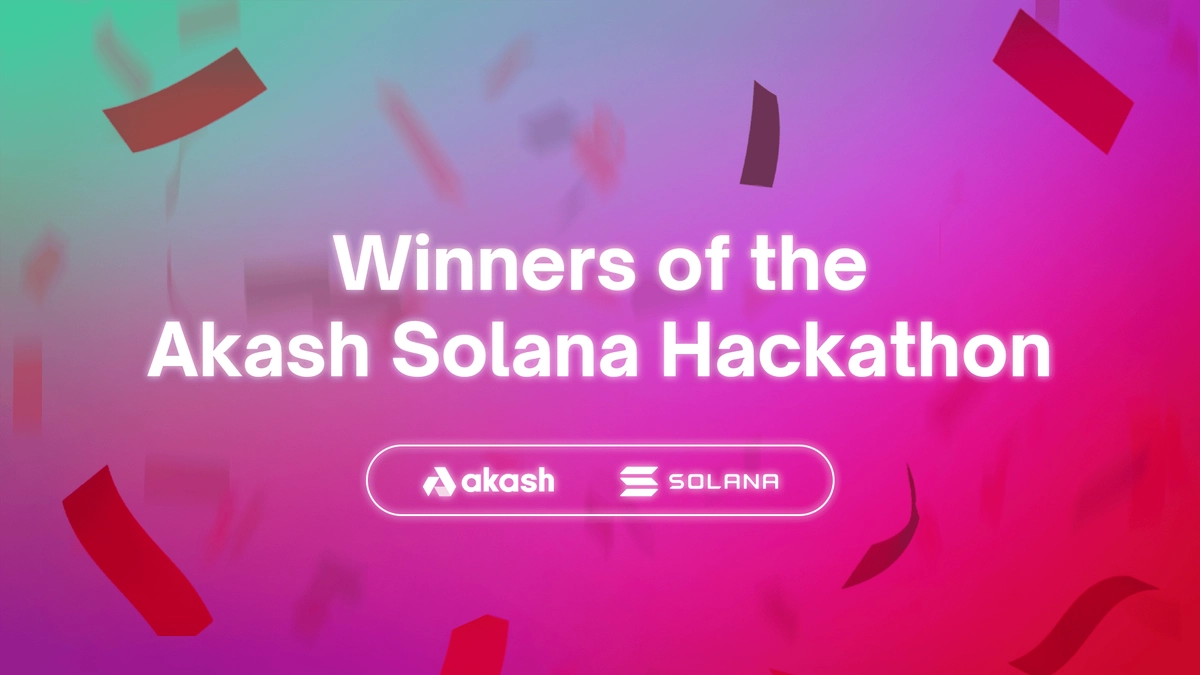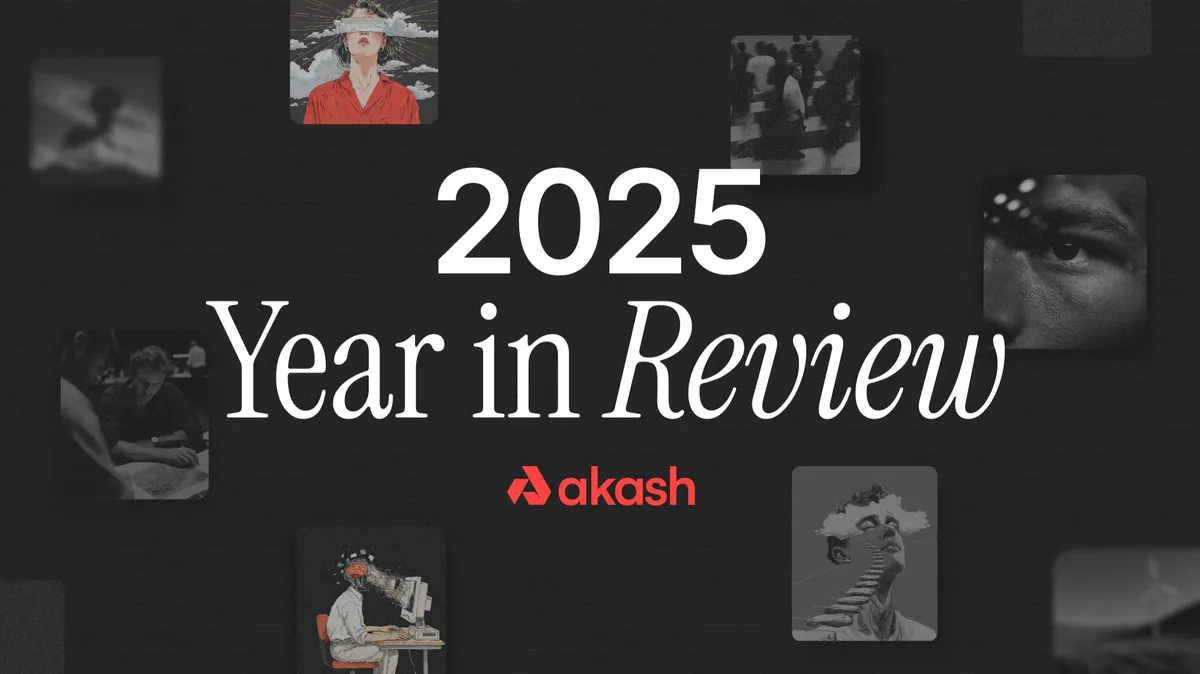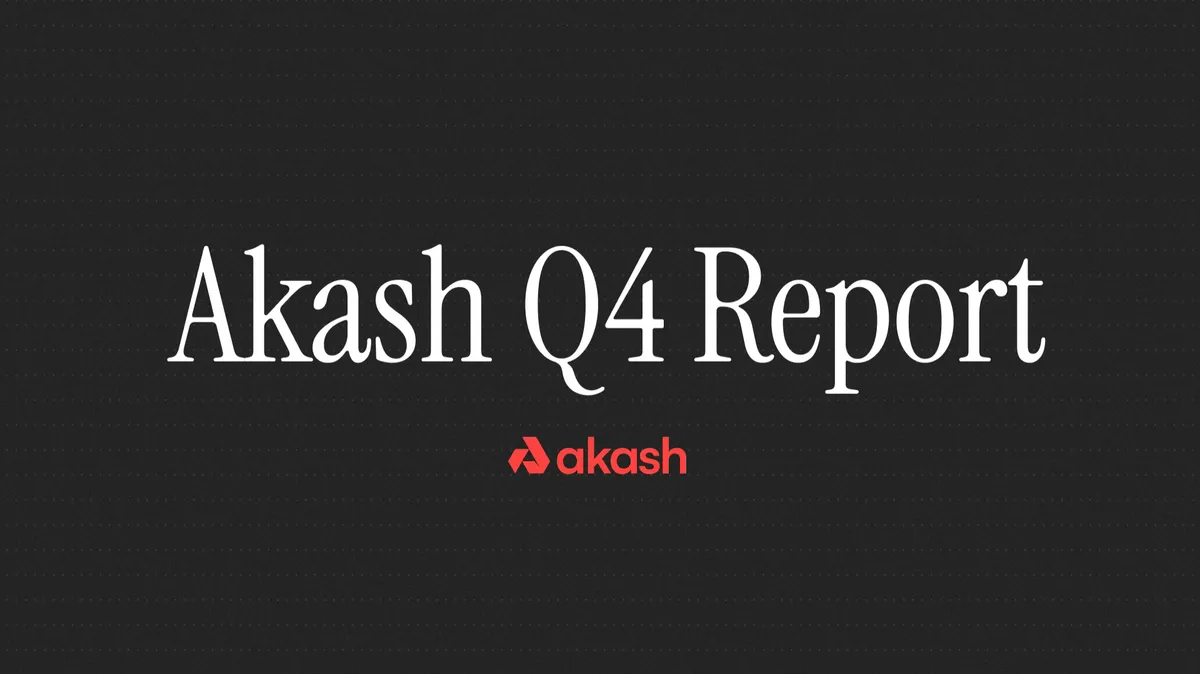
We’re excited to announce that every hacker who submitted a project at the Solana Season Hackathon won a prize of $1,000 or more. Seven hackers entered; seven won prizes 🥳
As a part of our efforts to accelerate the development of Web3 and DeFi applications, we sponsored the Solana Hackathon with $15,000 in prizes, paid out in AKT.
We presented a total of 4 challenges asking attendees to deploy an open-source application on Akash, integrate it with a separate decentralized storage solution, develop a gateway (bridge) between Akash and Solana blockchains to exchange directly, and develop an integration between Akash and Torus.
1st Place: Deploy UI
In first place, with a $10,000 prize (2,500 AKT) is the Akash Deploy UI created by Tom Beynon and submitted by newsystem090 with a key improvement, Keplr wallet integration. We spoke with Deploy UI creator Tom Beynon and Josh Lee, CEO of Chainapsis, the team behind Keplr.
“The Akash Deploy UI makes it easier to manage multiple deployments on Akash in one place, your web browser.”
Tom Beynon
The Deploy UI tool runs locally on your own machine using Docker and eliminates the need to run CLI commands to deploy on Akash. The integration with Keplr was submitted to the hackathon with a video demo and a pull request was submitted to the project.
Keplr is a browser extension wallet for the Cosmos Interchain ecosystem. Kepler offers account management and wallet functionalities for all of the Cosmos-SDK based blockchains. Keplr has gathered over 30,000 users so far - connecting blockchain users with blockchain applications.
Tom’s most recent work includes a Pinterest-like app for adoptable dogs and cats with a dynamic NGINX load balancer that serves multiple Akash deployments from one domain name, pin.akash.host. Tom says he plans to make it easy to add a load balancer to your deployment,
“Akash Deploy UI could in the future have a ‘load balance this deployment’ or ‘group these deployments and load balance them’ feature built into the deployment interface.”
Tom Beynon
2nd Place: Kanboard
A prize of $1,000 (250 AKT) goes to the second place winner, Minato Fund, a team based in Tokyo - the sort of professional-hacker team you’d expect to win a hackathon. The Minato Fund created a deployment file to help developers deploy the open source Kanboard app on Akash.
“Akash is a perfect fit for hosting web apps, and the reason I joined this hackathon was to build a kanban board to manage our project and plan our work.”
Minato Fund
Kanboard is a free and open source Kanban project management software. Kanboard can visualize your work, drag and drop tasks to manage your project, and now it can run on Akash Network. The key to deploying Kanboard on Akash is the open source deployment file.
3rd Place: CLI Wrapper
The third place prize of $1,000 (250 AKT) goes to CoffeeRoaster, for starting work on a new version of the Akash CLI that will manage environmental variables and wallets. We chatted with CoffeeRoaster who explained his motivation for the project.
“My main motivation was to be able to easily script deployments. This will help move Akash to the next level and enable 3rd party integrations.”
CoffeeRoaster
Written in Golang for integration with the existing Akash project, the new CLI will have the ability to automatically sync environmental variables, manage private keys including multisig wallets, and handle the full deployment of creating deployments, logging, and tear-down. This project is not quite finished, and CoffeeRoaster’s work continues.
“I am considering linking to the Awesome-Akash repo of existing templates to speed up deployments even further.”
CoffeeRoaster
Solana on Akash Challenge
In the middle of the Solana-Akash livestream for the hackathon, Akash’s CEO Greg Osuri announced a surprise challenge to the hackers: run a Solana node on Akash and write a guide teaching others how to do it. Greg believes that Akash needs well written guides for every blockchain, and offers up roughly $4,000 (1,000 AKT) as a prize.
Each with their own writing style, four submissions were submitted via Twitter. We polled the Akash community forum and 218 votes were placed, and the community was excited to participate in the decision making process. The resulting rankings showed impressive community engagement:
- 48% Solana on Akash Network by Andrey Arapov
- 32% SOL on Akash for Dummies by Chandra Station
- 10% Run a Solana Node on Akash by FishyMoves
- 10% Run Solana Cluster on Akash DeCloud by Harish Marri
At the end of the poll, we decided to award a prize to all four entries. You could have won too.


